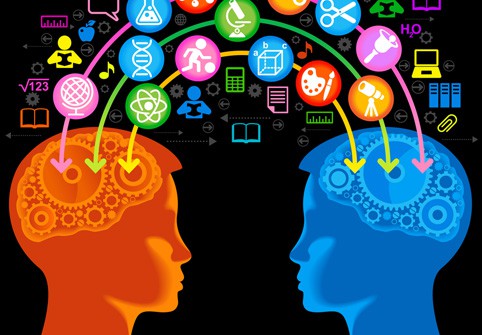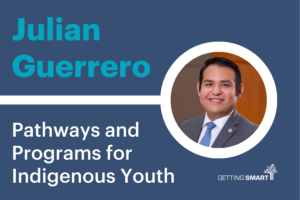Blended Learning Moves into Teacher Prep Programs

We spend a lot of time thinking about the shift to personalized, blended learning and talking about the conditions that have to be in place to really move the needle. Rightfully so, much of the attention has been focused on students and how their roles change in a blended environment. But what about teachers? Thought leaders are just starting to ask how can we improve Conditions and Careers by incorporating blended learning into teaching and learning?
But there’s more to changing teachers’ roles than what happens once they are already in the classroom. What about teacher preparation? What do pre-service teachers need to be successful in a personalized, blended learning environment?
Our friends at MIND Research Institute offer a good example of the type of collaboration between K-12 and Higher Ed that is necessary to really answer this question. They’ve developed a plan to prepare teachers for a personalized, blended learning environment by training them in a personalized, blended environment–mirroring the exact kind of learning that they will create for their own students.
MIND Research takes the business of how kids learn math very seriously. The mission of Spatial-Temporal Math (ST Math) University is to ensure that ALL students are mathematically equipped to solve the world’s most challenging problems. With their mission in mind, they are offering the program to universities free of charge. With big successes and recent momentum, they see this program as a chance to give back to the community. Dr. Elizabeth Chronister, Director of Strategic Services at MIND Research looks forward to the long term significance, “We want to impact as many students’ math education as possible.”
ST Math University starts with building university partnerships. With no cost to the school, the MIND team helps embed ST Math into the teacher credentialing program and math methods courses. Within these partnerships, the program works to train the teacher, giving them a unique learner experience that fosters their own “ah-ha moments” and provides a safe place to gain a more conceptual understanding of mathematics. Teachers are encouraged to feel what its like to learn math in the same way their students will. In addition, teachers spend time learning how to implement blended programs effectively, how to group students, use data efficiently, and how to use ST Math within core content. Continued support is of the utmost importance and MIND Research has pulled together a comprehensive team to support teachers and teacher trainers while they’re participating in ST Math University, as well as once they begin their work in the classroom. Participation in ST Math University helps teachers stand out. They will have a deeper understanding of how students learn, how they use manipulatives, and how they can incorporate technology into math education.
The idea first came from principals looking to give teachers a first hand experience with ST Math. MIND Research jumped at the opportunity and are now piloting the program with a number of universities. By building partnerships, training teachers and providing continued support, MIND Research looks forward to pushing math education into the next century.
Strong, quick, and positive responses from the universities indicate the high need for a program like this. We are seeing that with the move toward Common Core State Standards comes the key question of responsibility of teachers and teacher trainers to connect lessons and content to these standards. Dr. Chronister highlights that ST Math is a tool that teachers use in everyday lesson plans to help implement Common Core. “ST Math is perfectly aligned and designed to the Common Core,” she explains. “Students are making sense of the problems, they are articulating what they see, and they are challenging the thinking of the student next to them.”
With universities’ drive to stay relevant, motivated teachers’ demand for a different way to teach mathematics, and the country’s focus on college and career-ready standards, a program like this is not only vital to the future of math education but an outstanding model for the way in which K-12 and Higher Ed must come together to better prepare teachers for personalized, blended learning.
MIND Research Institute is a Getting Smart Advocacy Partner.



0 Comments
Leave a Comment
Your email address will not be published. All fields are required.